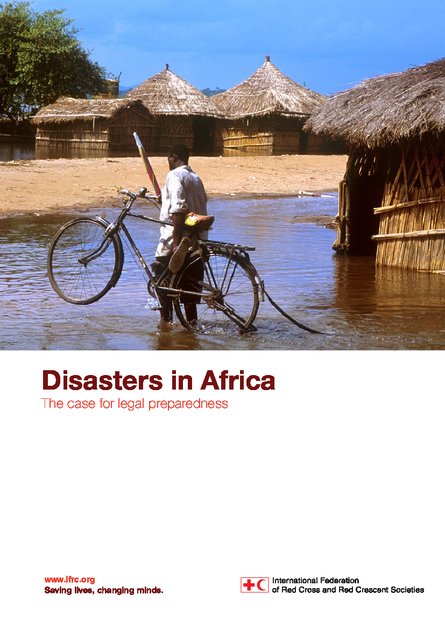
African communities have always been resourceful when adapting to their environment and today’s threats are forcing them to become ever more resilient.
Development issues are high among their concerns. A vicious cycle of poverty and ill health are the reality for many African countries. Almost half of the population of Sub-Saharan Africa lives on less than one dollar a day. Moreover, the continent shoulders a disproportionate burden of the world’s communicable diseases, including the highest number of people living with HIV (22.5 million in sub-Saharan Africa) and the highest rates of HIV-TB co-infection. Africa is the home of 60 per cent of the world’s malaria-sufferers and witnesses 90 per cent of the world’s malaria deaths.
It is against this challenging background that Africans are bracing against the rising toll of natural disasters. Due in part to the effects of climate change, extreme weather events are on the rise in many parts of the continent. On the one hand, the Sahel region and the Horn of Africa suffer droughts so persistent that crops won’t grow and millions of people are deprived of basic food necessities, sometimes amounting to a veritable famine in particularly vulnerable places like Somalia. On the other hand, many other parts of the continent are prone to flooding. For example, heavy rains in Congo and Northern Angola increasingly lead to massive flooding in the areas banking the Zambezi River. This was painfully illustrated by the mega floods of 2000 and 2001 in Mozambique, which drew the world’s attention through television images of a woman giving birth in a tree. Such floods not only drown people, livestock and homes, they can also lead to a great upsurge of waterborne diseases, like cholera.
But not all is bad news. Many of these disasters are of the recurring type, and hence may be predictable. As a consequence, their risks may be mitigated through advance planning and preparation, and a number of African governments are doing just that. Inspired by the Hyogo Framework for Action, the flagship global instrument in the area of disaster risk reduction, and the African Disaster Risk Reduction Strategy, governments across the continent have been strengthening institutions, plans and mechanisms to increase their capacities for disaster management. National Red Cross and Red Crescent Societies, with their community-based networks of volunteers, are playing a key supporting role.
In order to establish a firm foundation for these efforts, African countries need strong disaster laws.